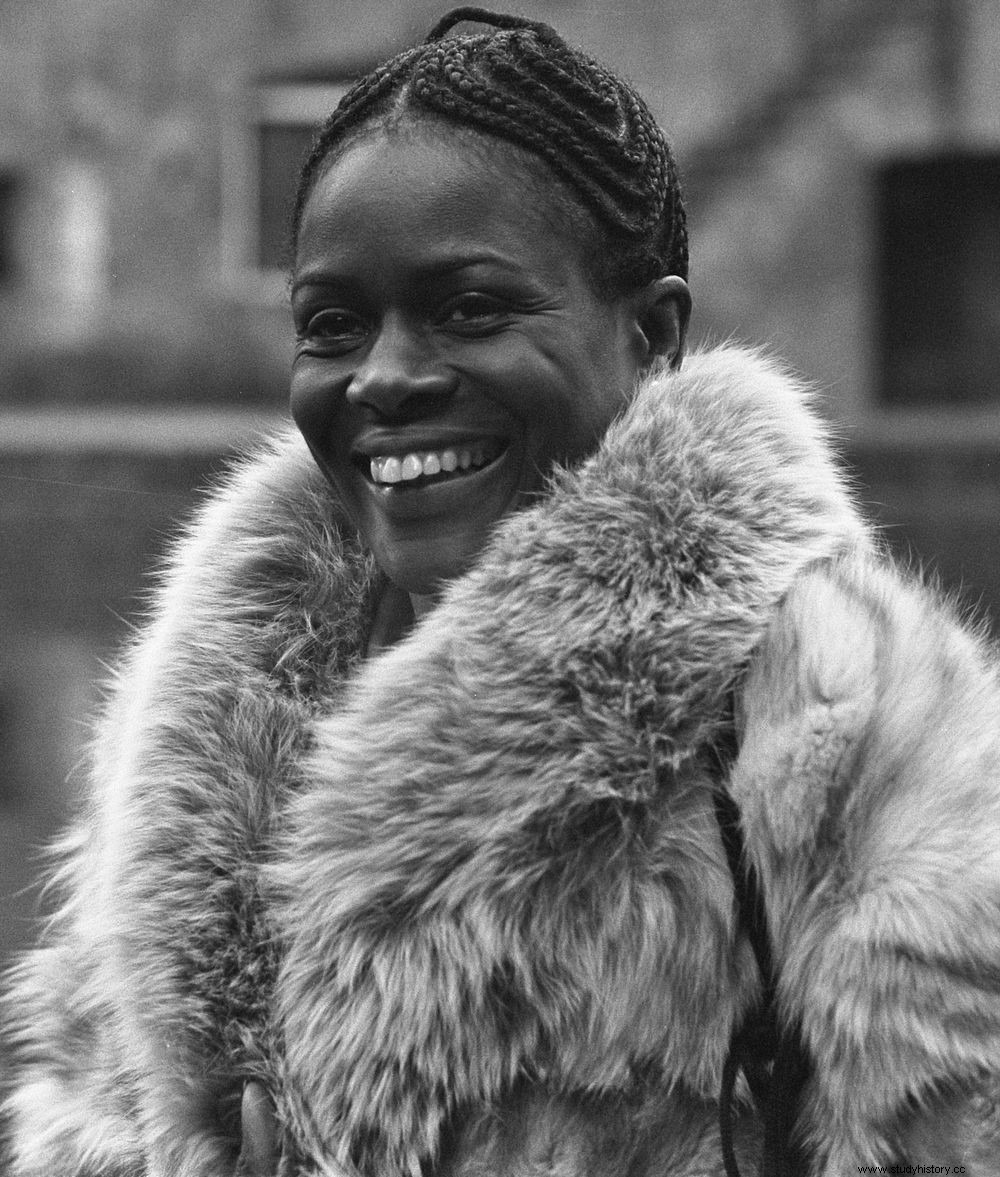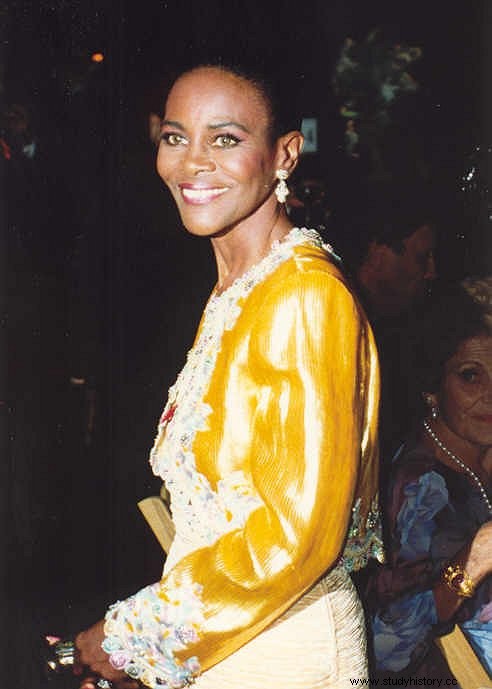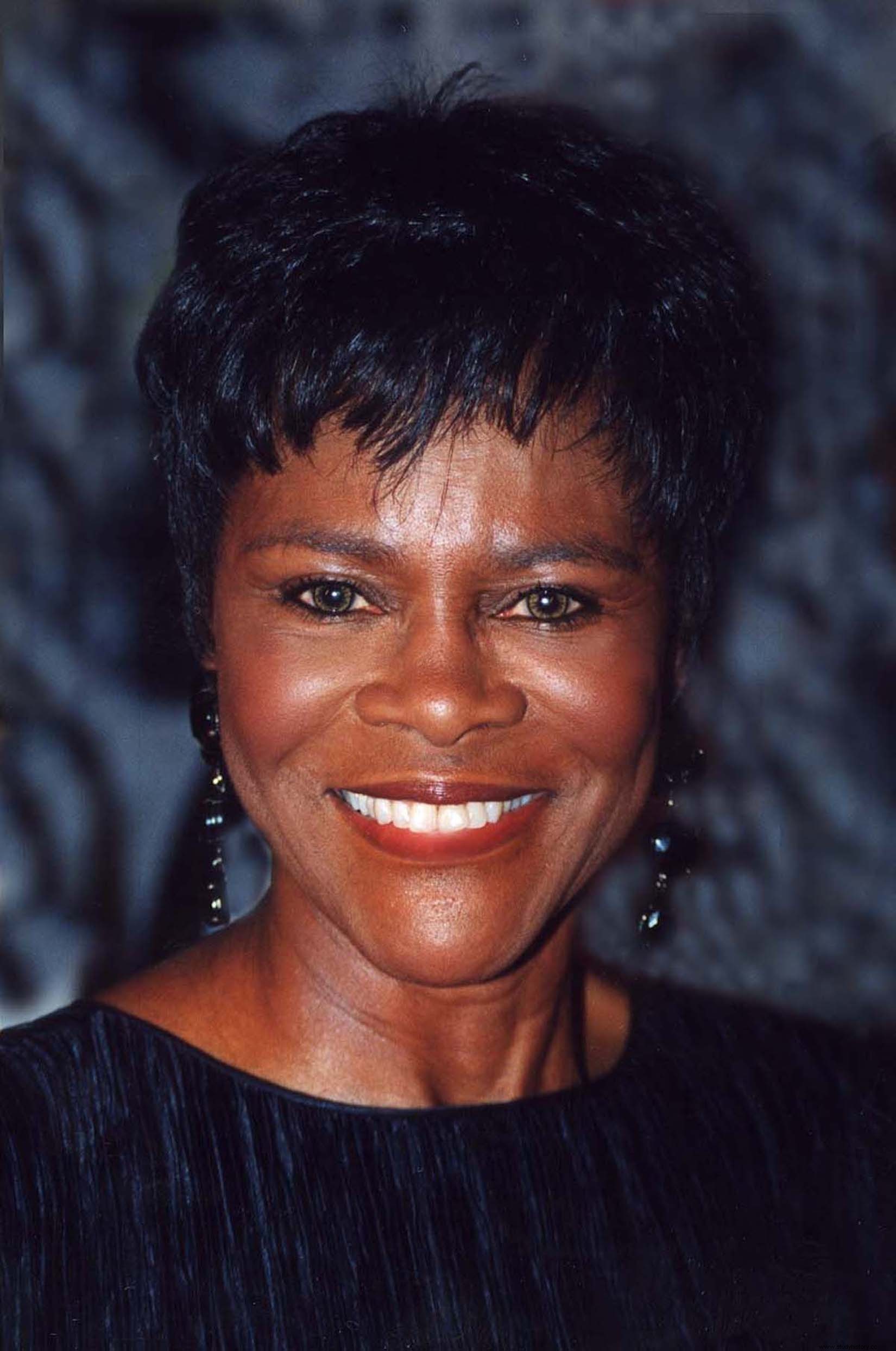A long-lived actress and model, Cicely Tyson (1924 – 2021) is known for her portrayals of strong women and her immense contribution to the representation of African-American women.
A childhood in Harlem

Born on December 19, 1924 in Harlem (New York, United States), Cicely Tyson is one of the three children of Fredericka Huggins, servant, and William Augustine Tyson, carpenter, both originally from the Caribbean and recently arrived in the United States. -United. They separate when the girl is eleven years old, and Cicely is raised by her mother.
Cicely grew up in Harlem, in a very religious environment. His mother, in particular, forbade him to go to the cinema and to associate with boys; she will initially find it very difficult to accept her daughter's choice to pursue a career as an actress. Growing up, Cicely attended an Episcopal church and sang in the choir.
At the age of seventeen, Cicely has a daughter. The following year, she married Kenneth Franklin, with whom she had a brief marriage; her husband abandoned her after eighteen months.
Career beginnings
Cicely Tyson begins working as a model, a career in which she finds rapid success; she appears in particular in Ebony magazine and Vogue. It was in 1951, at the age of 27, that she obtained a first role:she appeared in the series Frontiers of Faith from NBC. The performance earned her being kicked out by her mother, who would not speak to her for two years; she will finally change her mind when she sees her daughter on stage.
Cicely got her first film role in 1956, playing Carib Gold . Subsequently, she sporadically obtained small roles in the cinema and, from 1958, performed on stage in Harlem; she makes her first appearance in Dark of the Moon . In 1961, she played the role of Stephanie Virtue Secret-Rose Diop in the play The Blacks by Jean Genet, alongside in particular Maya Angelou and James Earl Jones, a piece that met with some success. Subsequently, she won an award for her performance in another play, Moon on a Rainbow Shawl .
Cicely then plays in the theater, in the cinema and on television. She plays the role of a social worker's secretary in the series East Side / West Side on CBS, which deals with social issues; she is then the only African-American to have a regular role in a television series
First main roles

In 1972, Cicely Tyson got her first starring role playing the character of Rebecca Morgan, the wife of a Louisiana sharecropper, in the movie Sounder . Her performance earned her an Oscar nomination for Best Actress and a Golden Globe Award for Best Actress. “That movie was, for me, the first acknowledgment that I could do something that would move people” (this film proved to me for the first time that I could touch people), she testified in 2017 in an interview for Elle.
Cicely continues her momentum by landing the lead role in the TV movie The Autobiography of Miss Jane Pittman , in which she plays the role of a former slave throughout her life, from the Civil War to the civil rights movement. Thanks to this role, she won the first Emmy Award won by an African-American actress. She subsequently obtained many other roles in films, series and television films, and notably interpreted Coretta Scott King in 1978, and Marva Collins in 1981. This last role wins him an NAACP Image Awards , an award presented by the National Association for the Advancement of Colored People; she will receive several during her career.
The same year, Cicely married Miles Davis, with whom she had a tumultuous relationship until their divorce in 1989.
A voice for African American women
A committed woman, a great defender of the rights of African Americans, Cicely Tyson makes it a point of honor to carefully choose her roles, discarding stereotypical or degrading roles and interpreting strong women. She also strives to inspire her colleagues to do the same.
In his autobiography Just as I Am , published shortly before his death, Cicely explains:“My art had to both mirror the times and propel them forward. I was determined to do all I could to alter the narrative about Black people — to change the way Black women in particular were perceived, by reflecting our dignity . (My art had to both reflect current times, and advance them. I was determined to do whatever I could to change the narrative about black people – especially to change the way black women were viewed , reflecting our dignity).
This commitment, which sometimes cost her months or more without work, made her an inspirational figure for several generations of black actors and actresses, a pioneer paving the way for those who came after her.
Exceptional longevity
Cicely pursues a prolific career of exceptional longevity. She appears in The Women of Brewster Place in 1989, in Green tomato fritters in 1991, in the series Sweet Justice in which she played a civil rights activist in 1994 – 1995. In 1994, her role in the television movie Oldest Living Confederate Widow Tells All earns him a third Emmy Award.

In 2011, Cicely played the character of Constantine Jefferson, a servant in Jackson, Mississippi, in The Color of Feelings . Tireless, she hasn't finished with the awards either:in 2013, she won the Tony Award for Best Actress, an award dedicated to dramatic art, for her role as Miss Carrie Watts in The Trip to Bountiful; at 88, she is the oldest actress to win this award. Her last most notable role was undoubtedly that of the mother of the character played by Viola Davis in the series How to Get Away with Murder .
Alongside the prizes crowning her impressive career, Cicely receives many other honors and awards:the NAACP presents her with the Spingarn Medal for her acting career and her support for the civil rights movement and, in 2016, President Barack Obama presents him with the Presidential Medal of Freedom. In 2018, Cicely is the first African-American to receive an honorary Oscar.
Cicely Tyson dies in January 2021, after an exceptional career on many levels, which saw her appear in more than one hundred films, television films, series and plays, for seven decades. She receives many tributes, both for her artistic contribution and for her commitments. Viola Davis writes: “You were everything to me! You made me feel loved and seen and valued in a world where there is still a cloak of invisibility for us dark chocolate girls. » (You were everything to me! You made me feel loved, seen, and valued in a world where there's always an invisibility cloak for us dark-skinned girls).
